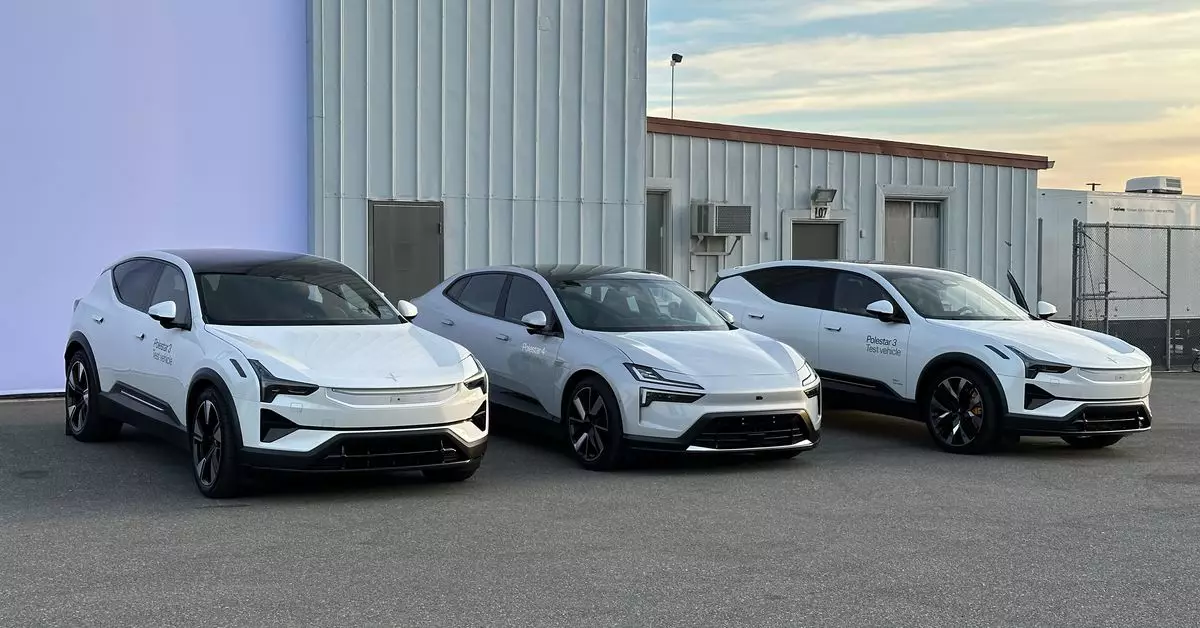In a significant move reflecting escalating tensions in international trade and security, the Biden administration has finalized legislation that prohibits certain connected vehicle technologies from China and Russia. This policy aims to safeguard the United States against potential threats from foreign adversaries that could exploit automotive technology for espionage, using interconnected systems such as Bluetooth, Wi-Fi, and GPS. As vehicles become increasingly reliant on sophisticated technologies—like cameras and sensors—the potential for these systems to be weaponized is a growing concern for national security. The U.S. Secretary of Commerce, Gina Raimondo, emphasized the necessity of such measures, arguing that foreign adversaries could amass sensitive information about citizens and infrastructure.
Such decisions are indicative of a broader mindset aiming to fortify the automotive industry against any external vulnerabilities that could compromise data integrity. The effect of this ban will primarily be seen in the automotive landscape, where manufacturers are now faced with navigating a more complex regulatory environment.
The implications of this prohibition extend beyond merely restricting imports; they could invoke seismic shifts within the automotive sector. Major manufacturers like Ford and General Motors, alongside smaller companies such as Polestar, are left grappling with the intricacies of compliance. The legislation not only targets vehicles produced abroad but notably affects those whose components are tied to Chinese or Russian technology. As a safeguard, the new rules stipulate that any connected vehicle software sold in the U.S. must not originate from entities under the control of these foreign states, regardless of where the vehicle is manufactured.
While the rule is designed for future model years, starting with the 2027 models for software and 2030 for hardware, it has stirred urgent discussions among auto industry stakeholders. The Alliance for Automotive Innovation, representing many prominent manufacturers, has voiced concerns regarding the complexity of the global supply chain and how this new policy could inadvertently cause significant disruptions.
Specific Exemptions and Their Importance
Interestingly, the finalized rules do allow for certain exemptions, particularly for larger vehicles weighing over 10,000 pounds, which includes electric buses. This change aims to keep companies like BYD operating in the U.S., particularly as the demand for electric buses grows amid concerns about climate change and urban mobility. However, the long-term implications of the exemption for these heavier vehicles suggest a partial reprieve for some manufacturers but also raises questions about the overall efficiency of the automotive industry as it adjusts to regulatory constraints.
Moreover, the complexities surrounding the rule have already manifested into strife among manufacturers. Polestar, owned by the Chinese company Geely, highlighted how the ban could effectively obstruct its market presence in the U.S., particularly affecting its enterprise within the domestic manufacturing landscape.
As the self-driving vehicle sector progresses, the implications of the ban could be most pronounced for firms like Waymo, a subsidiary of Alphabet. With ambitions to utilize vehicles manufactured by Geely’s Zeekr, Waymo must now reassess its operational strategies in light of the regulatory barriers that may hinder the production pipeline. While the company has articulated plans to navigate the changing landscape—such as omitting telematics systems from its imported vehicles—the overarching uncertainty regarding the ban poses a substantial threat to its strategic objectives.
The possibility of an outright prohibition on the importation of Zeekr vehicles based on their Chinese origin brings to light the broader challenges faced by innovators and early adopters in the autonomous vehicle market. If U.S. policies continually tighten to circumvent foreign technologies, innovators may find themselves in a precariously restrictive environment that could stymie progress and technological advancement.
As the U.S. relies on increasingly advanced technology, the risks associated with foreign directives and influences become more pronounced. Policymakers have deemed that controlling foreign access to connected vehicle technology is crucial for protecting national interests. The logic behind prioritizing domestic manufacturing and delinking from potential adversaries speaks to a broader narrative in U.S. trade policy that seeks to bolster national security through economic independence.
While the new rules are framed under the guise of protecting national security, they inevitably create challenges and disruptions for the automotive sector. The implications ripple throughout the industry as manufacturers gear up to navigate uncharted regulatory waters, potentially leading to a fragmented landscape in which automakers must find innovative solutions for compliance while competing in a global marketplace increasingly characterized by mistrust and competition. The unraveling saga of U.S. vehicle technology regulation will undoubtedly shape the future of the industry for years to come.


Leave a Reply